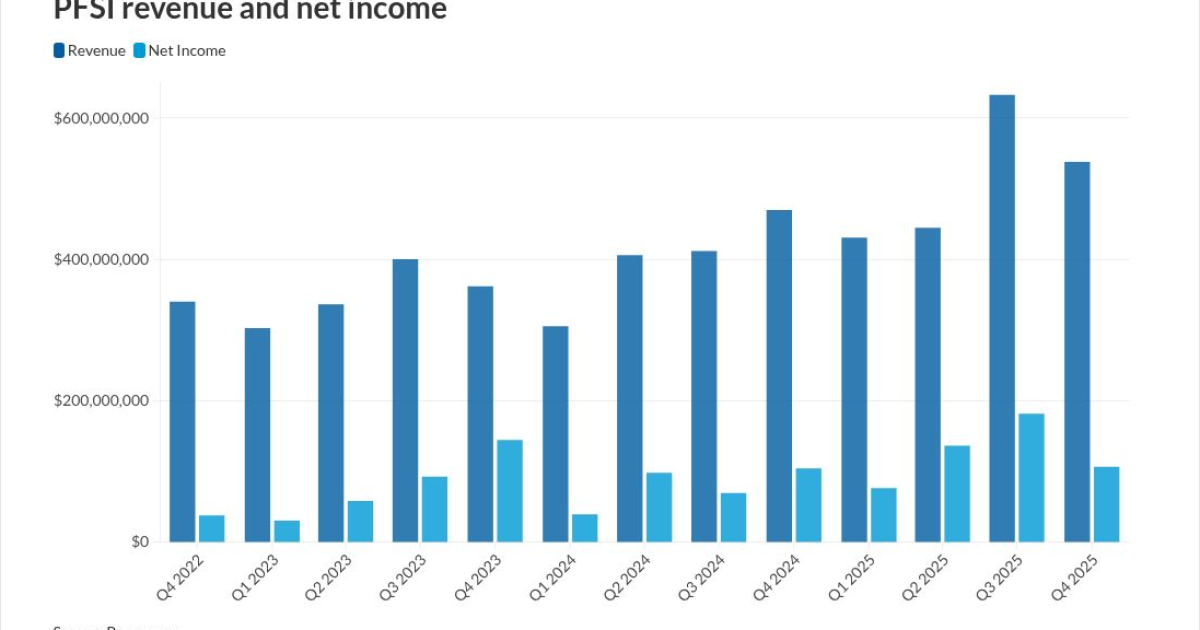Key Takeaways:
- You must file a final federal income tax return and mark it as “final,” regardless of your business structure.
- If you had employees or contractors, you’re required to file final payroll tax forms and issue W-2s or 1099s.
- Send a formal letter to the IRS to cancel your EIN and officially close your IRS business account.
- Pay all outstanding federal, state, and local taxes, including sales tax, franchise tax, and employment taxes.
- Dissolve your legal entity with your state by filing Articles of Dissolution and obtaining tax clearance if required.
- Keep tax, payroll, and asset sale records for at least seven years in case of audits after business closure.
Closing a business is a significant step that involves more than locking the doors or deactivating your website. Whether you’re a sole proprietor, LLC, or corporation, you’re still responsible for properly handling federal, state, and local tax matters. If done improperly, unresolved tax issues can follow you for years, even after your business ceases operations. This tax checklist for closing a business provides a step-by-step guide to help you wrap up your business’s tax obligations legally and efficiently.
Notify the IRS and File Final Tax Returns
Even if your business is no longer operating, you still need to file your final tax returns. Failure to do so could lead to penalties or unnecessary IRS correspondence down the road.
File a Final Income Tax Return
Every business entity must file a final federal income tax return for the year it ceases operations.
- Sole proprietors file a final Schedule C with their personal Form 1040. Check the box indicating that this is the final return.
- Partnerships use Form 1065, and partners will receive their final Schedule K-1s.
- Corporations file Form 1120 (or 1120-S for S Corps) and must check the “final return” box on the form.
For example, say your LLC was taxed as an S corporation, and it was dissolved in April 2025. You’d still file a 2025 return in early 2026, checking the “final return” box and including details on any final asset distributions or capital losses.
File Final Employment Tax Returns (If Applicable)
If your business had employees, you’re required to file final federal employment tax forms:
- Form 941 (quarterly federal tax return) or Form 944 (annual return), marked “Final return”
- Form 940 (federal unemployment tax)
- Provide final W-2 forms to employees and submit Form W-3 to the Social Security Administration
Don’t forget to deposit any remaining employment taxes due before the deadline. If you close mid-quarter, you still file for that period.
Report Payments to Contractors
If you paid independent contractors $600 or more during your final tax year, you must:
- Issue Form 1099-NEC to each contractor
- File copies with the IRS
Contractor payments are still taxable income, and your final compliance must reflect these properly.
Cancel Your EIN and Close Your IRS Business Account
Simply ceasing operations does not automatically cancel your Employer Identification Number (EIN). To officially close your IRS business account:
Send a Formal Letter to the IRS
Include the following in your letter:
- Copy of your EIN Assignment Notice (if available)
Keep a copy for your records. Once the IRS processes the request, your EIN will be considered inactive (although never reused).
Internal Revenue Service
MS 6055
Kansas City, MO 64108
Or
Internal Revenue Service
MS 6273
Ogden, UT 84201
Pay All Outstanding Taxes and Penalties
Closing your business doesn’t eliminate tax debt. Before shutting down, ensure all federal and state tax liabilities are paid in full.
Federal Tax Obligations
Review all areas of potential tax owed, including:
- Excise taxes (if applicable)
Use your last bank statements and accounting records to double-check outstanding liabilities.
State and Local Taxes
Your state likely requires final filings for:
- Franchise or excise taxes
- Business license or privilege tax
- State payroll withholding (if applicable)
Example: In California, you must file a final Sales Tax Return and close your seller’s permit through the California Department of Tax and Fee Administration (CDTFA).
Cancel State and Local Registrations, Licenses, and Permits
Properly ending your relationships with state and local agencies prevents future fees, fines, and miscommunications.
Notify Your State Revenue Department
Most states require you to:
- File a final sales tax return
- Indicate that the return is your last
- Officially close your sales tax permit/account
States like Texas, Florida, and New York have online portals for this process. Be sure to log in and submit final documentation.
Cancel Business Licenses or Permits
Cancel any local:
- Zoning or signage permits
Some local agencies charge annual renewal fees. Canceling in writing ensures you don’t receive a surprise invoice the following year.
Dissolve the Legal Entity (LLC, Corporation, etc.)
You must formally dissolve your legal entity with the state where it was registered. This is especially important if you want to limit personal liability and avoid future tax obligations.
File Articles of Dissolution
Contact your Secretary of State’s office or use your state’s business entity portal.
- LLCs and corporations must file Articles of Dissolution or a similar form.
- You may be required to submit a tax clearance certificate confirming you’ve paid all state taxes.
For example, in Illinois, you must obtain a tax clearance letter from the Department of Revenue before submitting dissolution paperwork to the Secretary of State. Some states (like California) require separate filings with the Franchise Tax Board in addition to business entity dissolution.
Handle Final Employee and Benefits Obligations
If you had employees, you must meet specific final requirements for wages, benefits, and tax documentation.
Provide Final Paychecks and PTO Payouts
Your state may set a deadline for issuing final paychecks, often within 72 hours of termination. Include:
- Unused vacation or PTO (if required by law or contract)
- Consult your state’s labor board for specific payout rules.
Terminate Employee Benefits Plans
Notify insurers and third-party administrators that your business is closing.
- Health plans: Follow COBRA rules if you had 20+ employees
- Retirement plans: Notify participants and file final reports with the IRS/DOL (e.g., Form 5500)
If you offered a 401(k), work with your plan provider to formally terminate the plan and distribute remaining assets.
Sell or Distribute Business Assets
Disposing of business assets, whether through a sale, donation, or transfer, can trigger tax consequences.
Report Asset Sales or Disposals
- Use Form 4797 to report gains or losses from selling business property
- Include assets such as equipment, vehicles, and furniture
For example, let’s say you sell a commercial printer for $5,000. You originally purchased it for $10,000 but depreciated it to $2,000. You must report a $3,000 gain.
Distribute Remaining Assets to Owners
If any assets are distributed instead of sold:
- Partnerships must reflect distributions on Schedule K-1
- S Corporations report on Form 1120-S and corresponding Schedule K-1s
Document asset transfers with fair market values for audit protection.
Maintain Records for Audits or Legal Requirements
Just because the business is closed doesn’t mean you’re off the hook. Federal and state agencies can audit prior years, and you’ll need documentation to defend your returns.
Retain Key Business Documents
- Tax returns (keep for at least 7 years)
- W-2s, 1099s, and payroll records
- Business asset records (depreciation schedules, sale documentation)
- Final dissolution paperwork
- EIN cancellation letter from IRS
Use cloud storage or encrypted backups to secure records even after business operations cease.
Additional Considerations for Specific Business Types
Each type of business entity has unique filing and closure requirements.
Sole Proprietors
- Simplest to close: file Schedule C and mark it “final”
- Cancel any DBA (Doing Business As) registrations
- Close sales tax or local licenses, if used
Partnerships
- Report asset sales and capital account balances
- Dissolve partnership with your state if registered
Corporations and LLCs
- File Form 966 (Corporate Dissolution or Liquidation) within 30 days of adopting the resolution to dissolve
- Distribute assets and report gains/losses
- Issue final Form 1120 or 1120-S
Consult your state’s specific process to ensure both the tax authority and Secretary of State are informed.
Frequently Asked Questions
How do you get taxed if you close a business?
When you close a business, you’re still responsible for filing a final income tax return, reporting any gains or losses from asset sales, and paying all outstanding federal and state taxes. If you had employees or contractors, final payroll and information returns must also be submitted.
What needs to be done when closing a business?
To properly close a business, you must file final federal and state tax returns, pay any remaining taxes, cancel business licenses and permits, dissolve your legal entity with the state (if applicable), notify the IRS, and keep records for future audits.
Do I need to cancel my EIN if I close my business?
Yes, you should cancel your EIN by sending a letter to the IRS that includes your business name, EIN, and reason for closing. This officially closes your IRS business account, although the EIN itself will never be reused or reassigned.
Can the IRS collect taxes on a closed business?
Yes, the IRS can still collect taxes on a closed business if there are unpaid liabilities, unfiled returns, or errors in the final filings. Business closure does not eliminate prior tax obligations or shield you from enforcement actions.
What are the tax implications of dissolving an LLC?
Dissolving an LLC triggers the need to file a final tax return, report any asset sales, and properly distribute remaining assets to members. Depending on the structure (single-member vs. multi-member), you may also need to issue final K-1s or close payroll and sales tax accounts.
Tax Help for Closing Businesses
Closing a business requires more than walking away. Tax obligations can follow you for years if not handled properly. This tax checklist for closing a business is your starting point for a clean, compliant exit. Taking the time to file final returns, pay outstanding liabilities, and cancel accounts across all agencies ensures that you close the books with confidence. For more complex cases, especially those involving employees, retirement plans, or business property sales, consider consulting a CPA or tax attorney to avoid costly mistakes. Optima Tax Relief is the nation’s leading tax resolution firm with over $3 billion in resolved tax liabilities.
If You Need Tax Help, Contact Us Today for a Free Consultation
Publisher: Source link











